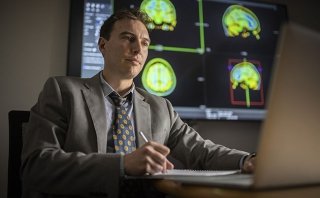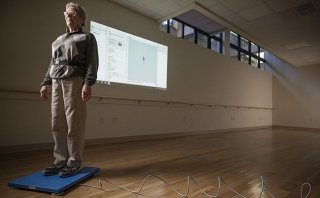
On-Yee (Amy) Lo, PhD
- Assistant Scientist II
- Assistant Professor of Medicine, Harvard Medical School and Beth Israel Deaconess Medical Center
- Faculty
Dr. Lo is a physical therapist and research scientist who aims to prevent functional decline and enhance functional independence for older adults with mobility impairments by conducting experimental and translational research. She has expertise and experience in physical therapy, biomechanics, neuroimaging, and neuromodulation.
Dr. Lo has dedicated her career to enhancing functional independence and quality of life in older adults. Her specific research objectives are:
- To investigate connections between the brain and body that enable safe navigation throughout daily environments.
- To innovate rehabilitative interventions that target these brain and body connections to preserve and restore the control of mobility.
- To implement the experimental findings into the clinical setting.
Dr. Lo’s clinical and scientific training in physical therapy, biomechanics, neurophysiology, neuroimaging, neuromodulation, and gerontology have enabled her to cultivate her passions in conducting translational research to help older adults walk and move safely in real life. She incorporates cognitive, brain, and movement sciences to understand the complex control of gait and mobility, and develop individualized, multi-modal, and patient-centered interventions that can both stand alone and be combined with current evidence-based geriatric rehabilitation programming to improve mobility and mitigate fall risks in older adults.
Investigation of the connection between brain, gait, and cognition in older adults:
Promotion of physical and cognitive function is critical to maximizing health- and life-span. Evidence indicates that physical and cognitive functions are not independent but instead are closely dependent upon one another. This means that, at the level of the central nervous system, our ability to safely navigate our environment without falling requires ongoing communication – and therefore underlying connectivity – between specific brain networks.
I am interested in investigating the relationship among the brain network connectivity and their relationship with gait (especially gait variability) and cognition (especially sustained attention). Furthermore, based on the findings, I am developing novel interventions such as non-invasive brain stimulation or incorporating existing interventions such as exercise, behavior, or music-based approach to optimize brain network connectivity and communication so that we can improve physical and cognitive functions in older adults.
Application of wearable technology to assess gait and mobility in geriatric rehabilitation:
Wearable sensors and systems have recently become available in the home and community settings. I am working with the team to apply the wearable technology in remotely testing and tracking gait and mobility performance in older adults.
| 2013 | Eugene & Clarissa Evonuk Research Award |
| 2013 | Betty Foster McCue Award |
| 2013 | Jan Broekhoff Graduate Award |
| 2014 | Ursula (Sue) Moshberger Award |
| 2015 | Travel Award Gait and Clinical Analysis Society |



